When you get a high blood pressure reading at the doctor's office, it might be tough for you to understand exactly what impact those numbers can make on your overall health. After all, high blood pressure (a.k.a. hypertension) has no unusual day-to-day symptoms.
But the truth is that having high blood pressure is a serious health risk—it boosts the chances of leading killers such as heart attack and stroke, as well as aneurysms, cognitive decline, and kidney failure. What's more, high blood pressure was a primary or contributing cause of death for nearly 500,000 people in 2018, per the latest data from the Centers for Disease Control and Prevention (CDC)
Even scarier? One in five U.S. adults with high blood pressure don't know they have it, per the CDC. If you haven't had your numbers checked in at least two years, see a doctor. Anything above 130/80 mmHg is considered high. (Systolic blood pressure is the top number; diastolic, the bottom.)
Although medication can lower blood pressure, it may cause side effects such as leg cramps, dizziness, and insomnia. The good news is that most people can bring their numbers down naturally, without using drugs. "Lifestyle changes are an important part of prevention and treatment of high blood pressure," says Brandie D. Williams, M.D., a cardiologist at Texas Health Stephenville and Texas Health Physicians Group.
You've quit smoking. You're paying attention to your weight. Now, try these natural ways to lower your blood pressure—no pills necessary.

Alistair Berg Getty Images
1. Get more exercise.
Regular exercise, even as simple as walking, seems to be just as effective at lowering blood pressure as commonly used BP drugs, according to a 2018 meta-analysis of hundreds of studies. Exercise strengthens the heart, meaning it doesn't have to work as hard to pump blood. Dr. Williams recommends shooting for 30 minutes of cardio on most days. Over time, you can keep challenging your ticker by increasing speed, upping distance, or adding weights. Losing even a little weight will also help ease hypertension.

Marko Geber Getty Images
2. Let yourself relax.
Our bodies react to stress by releasing hormones like cortisol and adrenaline. These hormones can raise your heart rate and constrict blood vessels, causing your blood pressure to spike. But breathing exercises and practices like meditation, yoga, and tai chi can help keep stress hormones—and your blood pressure—in check, Dr. Williams says. Start with five minutes of calming breathing or mindfulness in the morning and five minutes at night, then build up from there.
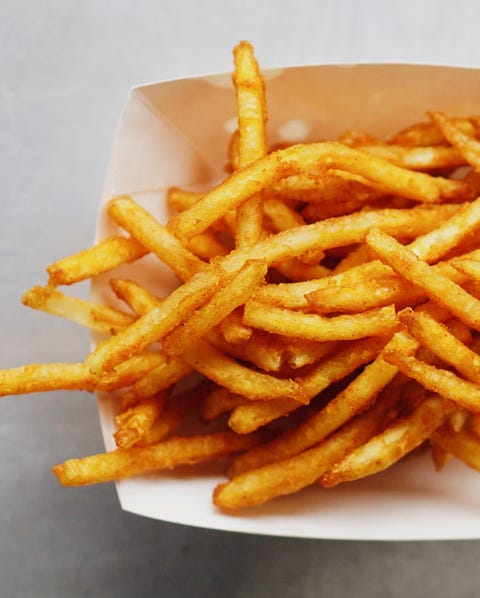
Mark Tan / EyeEm Getty Images
3. Cut down on salt.
Although not everyone's blood pressure is particularly salt-sensitive, everyone could benefit from cutting back, says Eva Obarzanek, Ph.D., research nutritionist at the National Heart, Lung, and Blood Institute. The American Heart Association recommends aiming for 1,500 mg of sodium in a day, and certainly no more than 2,300 mg (about a teaspoon). Obarzanek suggests treading with caution around packaged and processed foods, including secret salt bombs like bread, pizza, poultry, soup, and sandwiches.
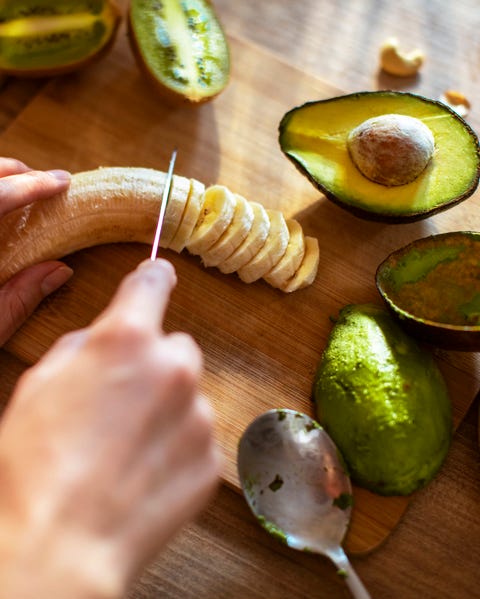
Marko Geber Getty Images
4. Pick potassium-rich foods.
Getting 2,000 to 4,000 mg of potassium a day can help lower blood pressure, says Linda Van Horn, Ph.D., R.D., a professor of preventive medicine at Northwestern University Feinberg School of Medicine. (The nutrient encourages the kidneys to excrete more sodium through urination.) We all know about the potassium in bananas, but foods like potatoes, spinach, and beans actually pack more potassium than the fruit. Tomatoes, avocados, edamame, watermelon, and dried fruits are other great sources.
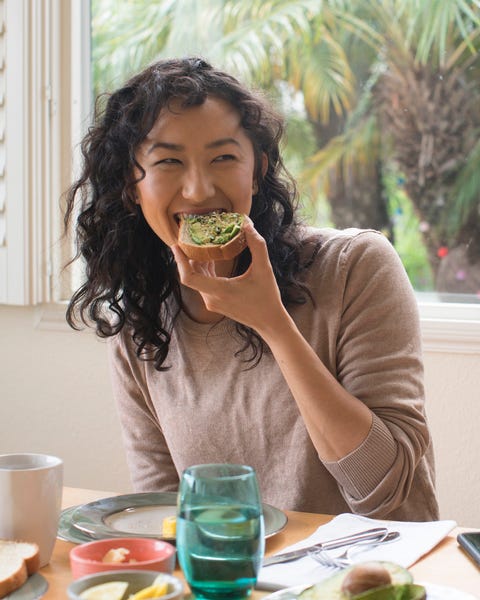
Eternity in an Instant Getty Images
5. Adopt the DASH diet.
Alongside the Mediterranean diet, the Dietary Approaches to Stop Hypertension (DASH) diet is consistently ranked as one of the absolute healthiest eating plans—and it was developed specifically to lower blood pressure without medication. The diet emphasizes veggies, fruits, whole grains, lean proteins, and low-fat dairy, capping daily sodium intake at 2,300 mg, with an ideal limit at that all-important 1,500 mg. Research shows DASH can reduce BP in just four weeks and even aid weight loss.
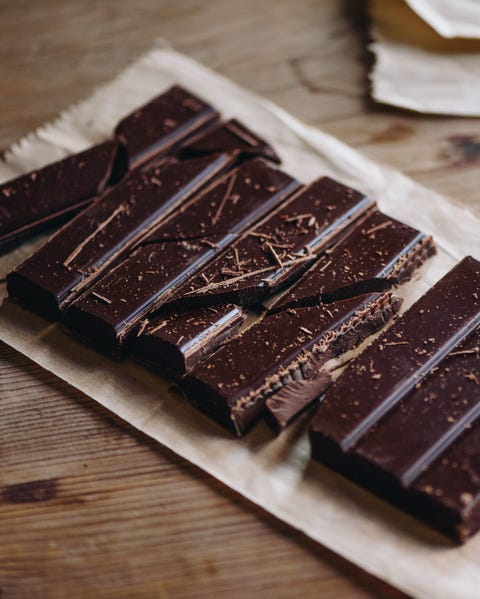
Emilija Manevska Getty Images
6. Indulge in dark chocolate.
The sweet is rich in flavanols, which relax blood vessels and boost blood flow, and research suggests that regular dark chocolate consumption could lower your blood pressure. Experts haven't determined an ideal percentage of cocoa, says Vivian Mo, M.D., clinical associate professor of medicine at the University of Southern California, but the higher you go, the more benefits you'll get. Chocolate can't be your main strategy for managing blood pressure, Mo says—but when you're craving a treat, it's a healthy choice.
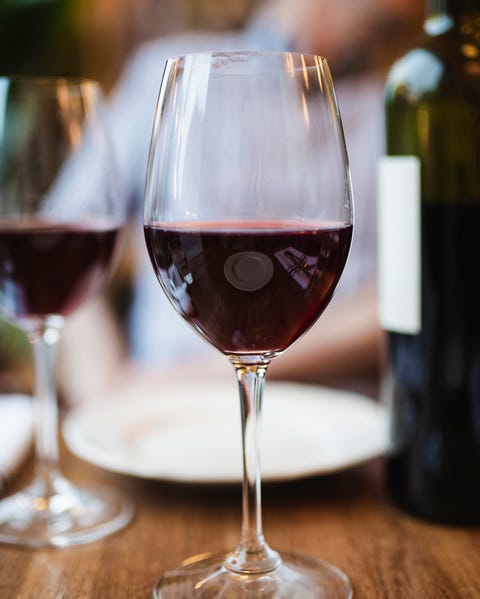
Linda Raymond Getty Images
7. Drink wisely.
Too much booze is known to raise blood pressure—but having just a little bit could do the opposite. Light-to-moderate drinking (one drink or fewer per day) is associated with a lower risk for hypertension in women, per a study following nearly 30,000 women. One drink means 12 ounces of beer, 5 ounces of wine, or 1.5 ounces of spirits. "High levels of alcohol are clearly detrimental," Obarzanek says, "but moderate alcohol is protective of the heart. If you are going to drink, drink moderately."

MoMo Productions Getty Images
8. Switch to decaf.
A 2016 meta-analysis of 34 studies revealed that the amount of caffeine in one or two cups of coffee raises both systolic and diastolic blood pressure for up to three hours, tightening blood vessels and magnifying the effects of stress. "When you're under stress, your heart starts pumping a lot more blood, boosting blood pressure," says James Lane, Ph.D., a Duke University researcher who studies caffeine and cardiovascular health. "And caffeine exaggerates that effect." Decaf has the same flavor without the side effects.
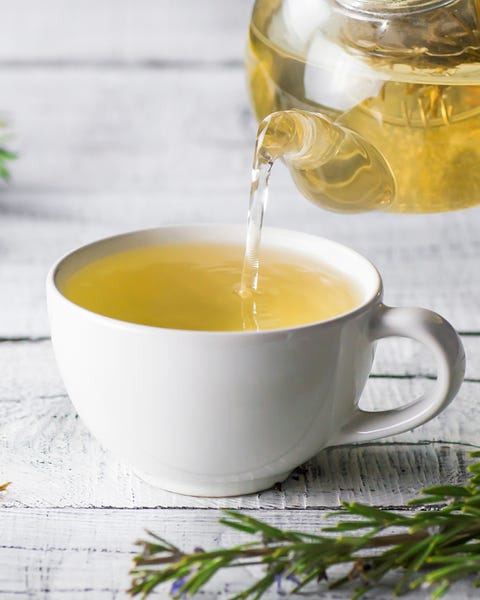
mescioglu Getty Images
9. Take up tea.
It turns out that lowering high blood pressure is as easy as one, two, tea. Adults with mildly high blood pressure who sipped three cups of naturally caffeine-free hibiscus tea daily lowered their systolic BP by seven points in six weeks, a 2009 study reported. And a 2014 meta-analysis found that consuming both caffeinated and decaf green tea is associated with significantly lowering BP over time. Tea's polyphenols and phytochemicals (nutrients found only in fruits and veggies) could be behind its benefits.

Thana Prasongsin Getty Images
10. Work less.
Putting in more than 40 hours per week at the office raises your risk of hypertension by 17%, according to a study of more than 24,000 California residents. Working overtime takes away time for exercise and healthy cooking, says Haiou Yang, Ph.D., the study's lead researcher. Not everyone can clock out early, but if you work a 9 to 5, try to log off at a decent hour so you can work out, cook, and relax. (To get in this habit, set an end-of-day reminder on your work computer and peace out as soon as you can.)
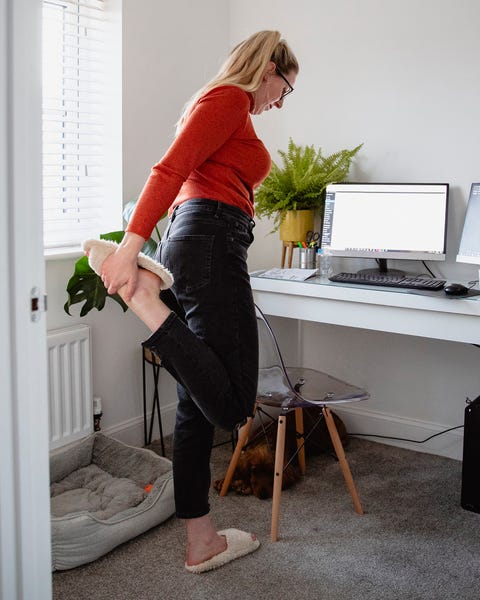
SolStock Getty Images
11. Sit less, too.
In the age of working from home, it's easier than ever to accidentally sit at your desk all day. Study after study after study has shown that interrupting prolonged sitting time at work can reduce hypertension, working in tandem with other practices like exercising, eating well, and getting enough sleep. Simply get up for a bit every 20 to 30 minutes, and at least every hour—even non-exercise activities like standing and light walking really can lower BP over time, especially if you start to sit less and less.

Delmaine Donson Getty Images
12. Relax with music.
The right tunes (and a few deep breaths) can help bring your blood pressure down, according to research out of Italy. Researchers asked 29 adults who were already taking BP medication to listen to soothing classical, Celtic, or Indian music for 30 minutes daily while breathing slowly. When they followed up with the subjects six months later, their blood pressure had dropped significantly. Louder, faster music probably won't do the trick, but there's no harm in blissing out to an ambient track or two.
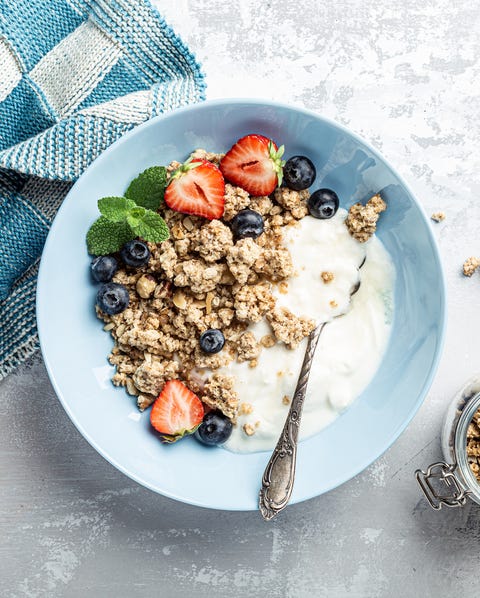
Iryna Melnyk Getty Images
13. Try fermented foods.
A 2020 meta-analysis of over 2,000 patients found that eating fermented foods—specifically supplements made from fermented milk—was associated with a moderate reduction in blood pressure in the short term. The culprit could be the bacteria living in these foods, which might produce certain chemicals that lower hypertension when they reach the blood. Other fermented foods, including kimchi, kombucha, and sauerkraut, haven't been studied in the same way, but they probably can't hurt.

PeopleImages Getty Images
14. Seek help for snoring.
Loud, incessant snoring is a symptom of obstructive sleep apnea (OSA), a disorder that causes brief but dangerous breathing interruptions. Up to half of sleep apnea patients also live with hypertension, possibly due to high levels of aldosterone, a hormone that can boost blood pressure. Fixing sleep apnea could be helpful for improving BP, says Robert Greenfield, M.D., medical director of Non-Invasive Cardiology & Cardiac Rehabilitation at MemorialCare Heart & Vascular Institute.
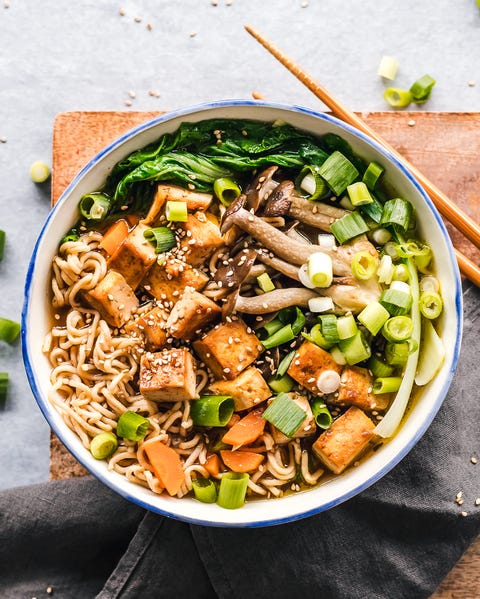
OatmealStories Getty Images
15. Focus on protein.
Replacing refined carbohydrates (like white flour and sweets) with foods high in soy or milk protein (like tofu and low-fat dairy) can bring down systolic blood pressure in those with hypertension, findings suggest. "Some patients get inflammation from refined carbohydrates," says Matthew J. Budoff, M.D., F.A.C.C., professor of medicine at the David Geffen School of Medicine and director of cardiac CT at the Division of Cardiology at the Harbor-UCLA Medical Center, "which will increase blood pressure."
Go here to join Prevention Premium (our best value, all-access plan), subscribe to the magazine, or get digital-only access.
FOLLOW PREVENTION ON INSTAGRAM
Marygrace Taylor Marygrace Taylor is a health and wellness writer for Prevention, Parade, Women's Health, Redbook, and others.
This content is created and maintained by a third party, and imported onto this page to help users provide their email addresses. You may be able to find more information about this and similar content at piano.io
Source: https://www.prevention.com/health/health-conditions/a20428370/how-to-lower-blood-pressure-naturally/
Posted by: hellwigbyronoes.blogspot.com
Posting Komentar